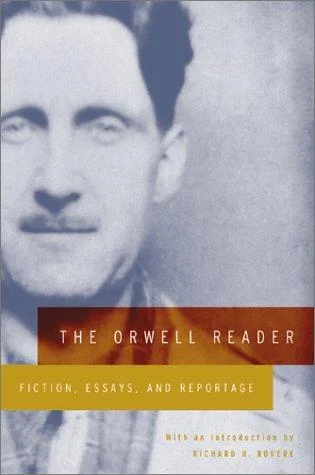The Orwell Reader
Fiction, Essays, and Reportage
(Author) George Orwell[1.] Prologue in Burma: Shooting an elephant -- A hanging -- From Burmese days -- [2.] The thirties: From Down and out in Paris and London -- How the poor die -- From A clergyman's daughter -- From Keep the aspidistra flying -- From The road to Wigan Pier -- From Homage to Catalonia -- From Coming up for air -- [3.] World War II and after: From The lion and the unicorn : socialism and the English genius -- England your England -- Rudyard Kipling -- Politics vs. literature : an examination of "Gulliver's travels"--Lear, Tolstoy and the Fool -- In defense of P.G. Wodehouse -- Reflections on Gandhi -- Second thoughts on James Burnham -- Politics and the English language -- The prevention of literature -- "I write as I please": Decline of the English murder ; Some thoughts on the common toad ; A good word for the vicar of Bray -- Why I write -- From Nineteen eighty-four -- "Such, such were the joys ..."
George Orwell
George Orwell, born Eric Arthur Blair in 1903, was an English novelist, essayist, journalist, and critic. He is best known for his works "Animal Farm" and "Nineteen Eighty-Four," which are both powerful critiques of totalitarianism and authoritarianism. Orwell's writing style is characterized by clarity, precision, and a sharp wit, making his works accessible and thought-provoking for readers.
Orwell's contributions to literature include his exploration of political and social issues, as well as his commitment to truth and honesty in writing. His works have had a lasting impact on the dystopian and political fiction genres, influencing countless authors and thinkers. "Nineteen Eighty-Four" in particular has become a classic of modern literature, with its portrayal of a bleak and oppressive future society resonating with readers around the world. Orwell's legacy as a writer and social critic continues to be celebrated and studied today for its enduring relevance and insight.

